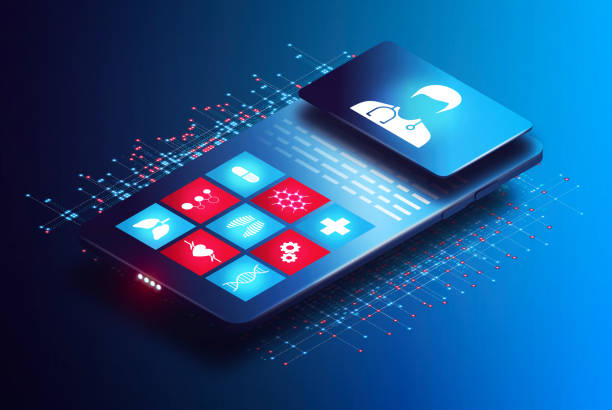

As a community services worker, you understand the impact of chronic diseases on individuals and the healthcare system. In today’s fast-paced world, where chronic conditions are on the rise, effective chronic condition management becomes crucial. Discover the pivotal role of technology in revolutionising and improving self-management of chronic diseases and empowering individuals to take control of their health through innovative self-care practices.
In managing chronic diseases today, traditional methods face challenges such as fragmented information sharing and low patient engagement, hindering effective care. Embracing innovative solutions is crucial to address this. Integrating chronic care management technology and personalised approaches can overcome the limitations of traditional models, leading to more effective and tailored strategies for chronic disease management that empower individuals to take an active role in their well-being.
In the changing world of chronic disease management, the integration of technology offers transformative solutions for community services workers seeking to help individuals enhance their self-management capabilities. As you navigate the intricate path toward improved well-being, the role of digital care management becomes increasingly pivotal. Delve into leveraging technology for better self-management of chronic diseases, exploring how innovative tools can help you empower individuals to take charge of their health with confidence:
The rise of digital health apps has ushered in a new era of personalised care. These applications, ranging from medication trackers to symptom loggers, empower individuals by providing real-time insights into their health status. Popular platforms exemplify how technology, when harnessed effectively, can transform smartphones into powerful tools for self-monitoring and proactive management, fostering a sense of control in the face of chronic conditions. Help individuals by assisting them in downloading these applications and teaching them how to use these digital tools.
Wearable technology has become helpful in chronic disease self-management, offering real-time health monitoring that transcends traditional boundaries. From smartwatches tracking vital signs to continuous glucose monitors, these devices empower individuals by providing a constant stream of health data. Remote monitoring tools further amplify this impact, enabling healthcare providers to intervene proactively based on real-time insights. Assist individuals in choosing and purchasing the right wearable devices and help them learn how to use these. Involve yourself by asking them for remote access to their data so you can monitor their health from a distance.
Telehealth services have made healthcare more accessible than ever. Virtual consultations bridge the gap between individuals and healthcare professionals, offering regular check-ins and timely medical advice without the constraints of physical proximity. This not only enhances patient convenience but also facilitates a continuous dialogue between patients and healthcare providers, fostering a collaborative and proactive approach to managing chronic conditions. Help individuals take advantage of telehealth by teaching them how to book and show up for virtual consultations.
As we embrace technology in chronic disease management, safeguarding health data is critical. The influx of digital health apps, wearable devices, and telehealth services makes concerns regarding data security and privacy loom large. Ensuring the confidentiality of sensitive health information is not only an ethical imperative but also fundamental to building the community’s trust in these technological advancements. As you navigate these digital chronic disease management systems and tools, help individuals implement robust security measures, encryption protocols, and adherence to stringent privacy standards to fortify the foundation of technology-driven chronic disease self-management and uphold the sanctity of their information.
The fusion of technology with the mission of community services workers like you marks a groundbreaking era in chronic disease management. Technology not only enhances self-management capabilities but also fosters a sense of autonomy and proactive engagement among those dealing with chronic conditions. By taking advantage of technology, you can empower individuals to take charge of their health journey. Leverage the transformative potential of technology to help create a future where individuals with chronic diseases have better self-management and improved well-being. Keep up with the changing landscape of community services by taking training and programs designed to help you be a better community services worker for the individuals you serve.
Gain further insights into implementing technology in chronic disease management by exploring the common queries about digital self-management of chronic conditions:
Digital health apps enhance daily self-care routines by providing personalised tools for monitoring, managing medications, and tracking symptoms. With features such as daily health reminders, these apps empower individuals to stay on top of their wellness goals, fostering a proactive approach to managing their chronic conditions. By seamlessly integrating into daily life, digital health apps become essential aides in promoting consistent and effective self-care practices.
Wearable devices play an important role in chronic disease management by offering continuous real-time monitoring of vital signs, physical activity, and other relevant health metrics. These devices, including smartwatches and fitness trackers, not only provide individuals with instant feedback on their health status but also enable healthcare professionals to access a comprehensive and ongoing dataset for more informed decision-making. Through this constant stream of health data, wearable devices contribute significantly to proactive disease management and early intervention strategies.
Telehealth services have proven to be a reliable and effective alternative to traditional in-person consultations, especially in chronic disease management. Offering virtual consultations, regular check-ins, and timely medical advice, telehealth enhances accessibility to healthcare professionals, overcoming geographical barriers. The convenience and flexibility provided by telehealth services not only improve patient engagement but also contribute to a more patient-centric and collaborative approach to managing chronic conditions.
Ensuring the security of health data in the realm of technology-driven self-care involves adopting proactive measures. Individuals can prioritise apps and platforms with robust encryption protocols, regularly update their software to patch vulnerabilities, and be mindful of sharing sensitive information. Opting for reputable and secure telehealth services, understanding privacy settings, and staying informed about data protection laws contribute to a comprehensive strategy for safeguarding the confidentiality of health information in the digital landscape.
Filed under: Community Services
Leave a Reply